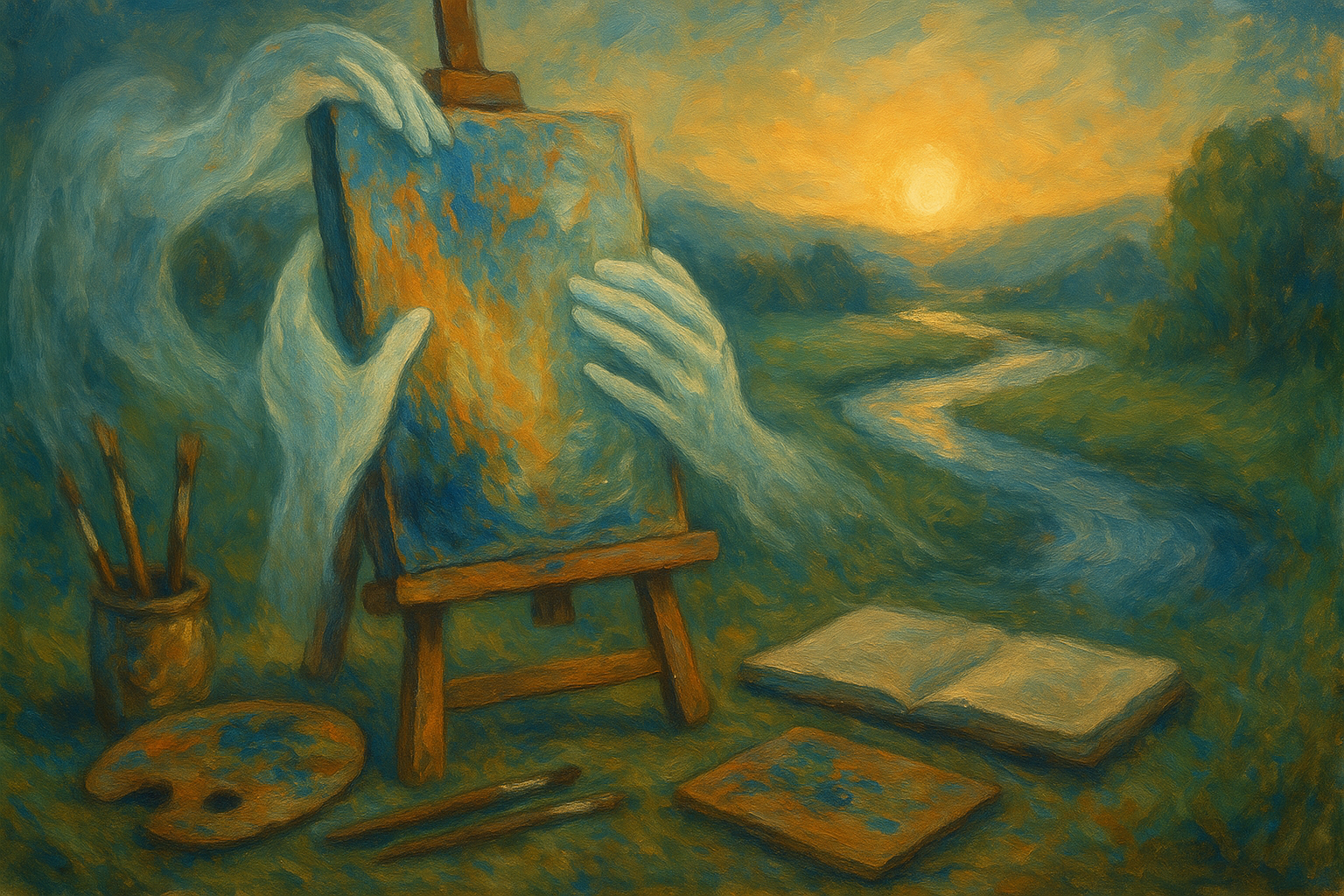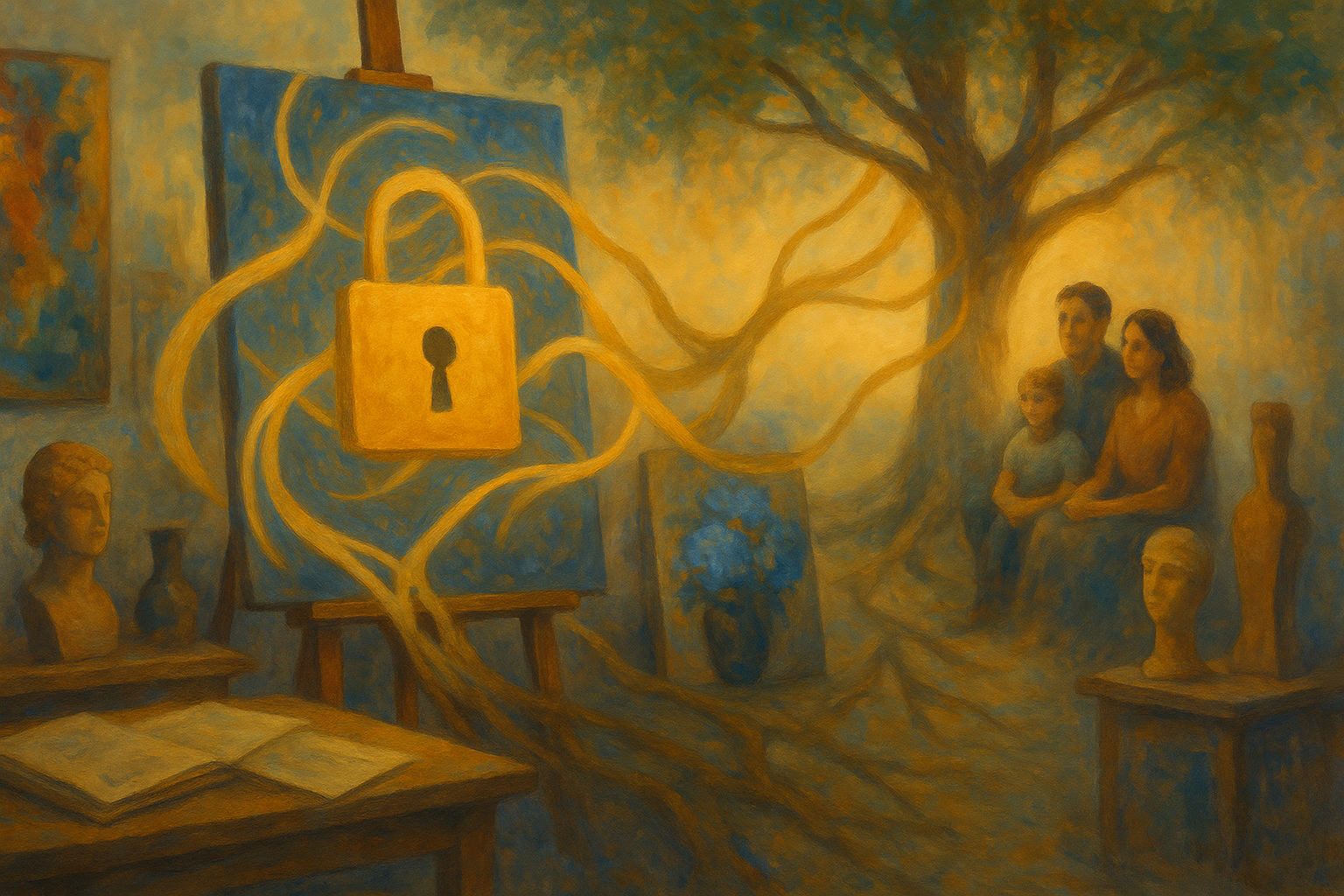
PARENTS & HOMEOWNERS: MY 7-STEP ESTATE PLANNING PROCESS WILL PROTECT YOUR HEIRS
From Creditors, Predators & Bad Choices, And Will Help You Become a (Bigger) Hero to Your Family!



Estate Planning for Artists: Protecting Your Creative Legacy
Estate Planning for Artists: Protecting Your Creative Legacy
As an artist, your work is more than just a collection of beautiful pieces; it’s a reflection of your soul, a testament to your creativity, and a legacy that deserves to be preserved. Estate planning might not be the most exciting aspect of your artistic journey, but it’s essential for ensuring that your creative legacy is protected and cherished for generations to come. In this blog post, we’ll explore the importance of estate planning for artists and provide practical tips to help you safeguard your life’s work.
Table of Contents
1. Introduction to Estate Planning for Artists
2. Understanding the Importance of Estate Planning
3. Key Steps in Estate Planning
4. Intellectual Property and Copyright Considerations
5. Choosing the Right Executor
6. Donating Your Work to Museums or Institutions
7. FAQs
8. Conclusion

Understanding the Importance of Estate Planning
Estate planning is not just for the wealthy; it’s for anyone who wants to ensure their assets are distributed according to their wishes. For artists, this includes not only physical assets like paintings, sculptures, and manuscripts but also intellectual property rights. Without a proper plan, your artistic legacy might be subject to legal disputes or mismanagement, potentially leading to the loss of your creative vision. By taking the time to plan your estate, you can provide clarity and peace of mind for yourself and your loved ones.
Key Steps in Estate Planning
Embarking on the journey of estate planning may seem daunting, but breaking it down into manageable steps can simplify the process:
1. Inventory Your Work
Start by cataloging your artwork. This includes paintings, sketches, digital files, and any other creative works. Make note of specific details such as creation dates, dimensions, and any associated copyrights. This inventory will serve as the foundation for your estate plan.

2. Determine the Value of Your Work
Understanding the monetary value of your art is crucial for estate planning. Consider hiring a professional appraiser who specializes in art to assess the value of your collection. This will help in making informed decisions about distribution and taxation.
3. Draft a Will
A will is a legal document that outlines how you want your assets distributed after your death. Make sure to specify how your artwork and intellectual property rights should be handled. Consider consulting an attorney who specializes in estate planning for artists to ensure your wishes are clearly articulated.
Intellectual Property and Copyright Considerations
Intellectual property rights are a vital component of an artist’s estate. These rights ensure that your creative work is protected from unauthorized use and can provide ongoing financial benefits. Here are some considerations:
1. Register Your Copyrights
While copyright protection is automatically granted upon creation, registering your work with the appropriate copyright office strengthens your legal standing and simplifies the enforcement of your rights.
2. Licensing Agreements
Consider creating licensing agreements that specify how your work can be used by others. This can ensure that your art continues to generate income and is used in ways that align with your values.
Choosing the Right Executor
The executor of your estate will play a crucial role in managing your artistic legacy. Choose someone who understands your work and shares your vision. This could be a family member, a trusted friend, or a professional with experience in art estate management. Discuss your wishes with them in detail to ensure they are prepared to carry out your plans.
Donating Your Work to Museums or Institutions
For some artists, donating their work to museums or educational institutions is an ideal way to preserve their legacy. This not only ensures that your art is appreciated by future generations but can also provide tax benefits. When considering this option, research potential institutions to ensure they align with your values and that your work will be properly cared for and displayed.
FAQs
Q: What happens if I don’t have an estate plan?
A: Without an estate plan, your assets, including your artwork, will be distributed according to state laws, which may not align with your wishes. This can lead to potential legal battles and the mismanagement of your creative legacy.
Q: Can I change my estate plan after it’s established?
A: Yes, you can revise your estate plan at any time to reflect changes in your personal or financial situation. It’s advisable to review your plan regularly and make updates as necessary.
Q: Do I need a lawyer to create an estate plan?
A: While it’s possible to create a basic estate plan on your own, consulting with a lawyer who specializes in estate planning for artists can ensure that your plan is comprehensive and legally sound.
Conclusion
Estate planning for artists is a critical step in ensuring that your creative legacy is protected and celebrated long after you’re gone. By taking the time to inventory your work, understand intellectual property rights, and choose the right executor, you can provide peace of mind for yourself and your loved ones. Remember, your art is your legacy, and it deserves to be preserved with care and intention. 🎨✨
Got Questions?
Set up your free, friendly, in-depth legal consultation with estate planning attorney Eric Ridley
